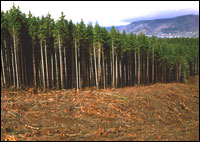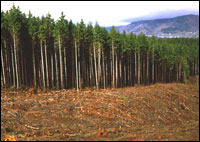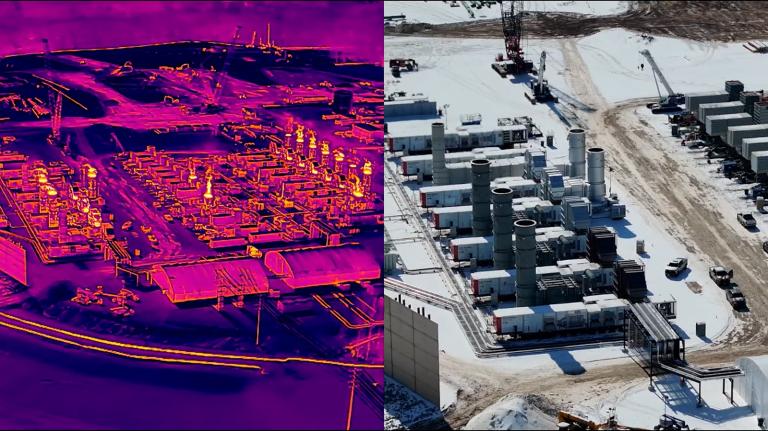This essay is adapted from Eco-Economy: Building an Economy for the Earth. You can download the book for free or order a hard copy from the Earth Policy Institute.
In 1543, Polish astronomer Nicolaus Copernicus published “On the Revolutions of the Celestial Spheres,” in which he challenged the view that the sun revolved around the Earth, arguing instead that the Earth revolved around the sun. With his new model of the solar system, he began a wide-ranging debate among scientists, theologians, and others. His alternative to the earlier Ptolemaic model, which placed the Earth at the center of the universe, led to a revolution in thinking, and ultimately to a new worldview.

Copernicus and the
revolution.
Today, we need a similar shift in outlook, in how we think about the relationship between the Earth and the economy. The issue now is not which celestial sphere revolves around the other but whether the environment is part of the economy or the economy is part of the environment. Economists see the environment as a subset of the economy. Ecologists, on the other hand, see the economy as a subset of the environment.
Like Ptolemy’s view of the solar system, the economists’ view is confusing efforts to understand our modern world. It has created an economy that is out of sync with the ecosystem on which it depends.
Evidence that the economy is in conflict with the Earth’s natural systems can be seen in the daily news reports of collapsing fisheries, shrinking forests, eroding soils, deteriorating rangelands, expanding deserts, increased carbon dioxide levels, falling water tables, rising temperatures, more destructive storms, melting glaciers, higher sea level, dying coral reefs, and disappearing species. These trends, which mark an increasingly stressed relationship between the economy and the Earth’s ecosystem, are taking a growing economic toll. At some point, this toll could overwhelm the worldwide forces of progress, leading to economic decline. The challenge for our generation is to reverse these trends before environmental deterioration leads to long-term economic decline, as it did for so many earlier civilizations.
These increasingly visible trends indicate that if the operation of the subsystem, the economy, is not compatible with the behavior of the larger system — the Earth’s ecosystem — both will eventually suffer. The larger the economy becomes relative to the ecosystem, and the more it presses against the Earth’s natural limits, the more destructive this incompatibility will be.

The unsustainable economy:
a clearcut in Washington state.
Photo: National Park Service.
An environmentally sustainable economy — an eco-economy — requires that the principles of ecology establish the framework for the formulation of economic policy and that economists and ecologists work together to fashion the new economy. We have created an economy that cannot sustain economic progress, an economy that cannot take us where we want to go. Just as Copernicus had to formulate a new astronomical worldview after several decades of celestial observations and mathematical calculations, we too must formulate a new economic worldview based on several decades of environmental observations and analyses.
Brother, Can You Paradigm?
Although the idea that economics must be integrated into ecology may seem radical to many, evidence is mounting that it is the only approach that reflects reality. When observations no longer support theory, it is time to change the theory — time for what science historian Thomas Kuhn called a paradigm shift.
More and more economists are looking for ways to get the market to tell the ecological truth. This spreading awareness is evident in the rapid growth of the International Society of Ecological Economics, which has 1,200 members and chapters in Australia/New Zealand, Brazil, Canada, China, Europe, India, and Russia. Its goal is to integrate the thinking of ecologists and economists into a new “transdiscipline” aimed at building a sustainable world.
How do we achieve this economic transformation when all economic decision-makers — whether political leaders, corporate planners, investment bankers, or individual consumers — are guided by market signals, not the principles of ecological sustainability? How do we integrate ecological awareness into economic decision-making? Is it possible for all of us who are making economic decisions to “think like ecologists,” to understand the ecological consequences of our decisions?
The answer is probably not. But there may be another approach, a simpler way of achieving our goal. Everyone making economic decisions relies on market signals for guidance. The problem is that the market often fails to tell the ecological truth. It regularly under-prices products and services by failing to incorporate the environmental costs of providing them.
By working together, ecologists and economists can calculate the ecological costs of various economic activities. These costs can then be incorporated into the market price of a product or service in the form of a tax. Additional taxes on goods and services can be offset by a reduction in income taxes. The issue in “tax shifting,” as the Europeans call it, is not the level of taxes but what is taxed.

Eco-Economy:
Building an Economy
for the Earth
By Lester R. Brown
W.W. Norton & Company,
224 pages, 2001
The question is not how much will it cost to make this transformation but how much it will cost if we fail to do it. Oystein Dahle, retired vice president of Exxon for Norway and the North Sea, observes, “Socialism collapsed because it did not allow prices to tell the economic truth. Capitalism may collapse because it does not allow prices to tell the ecological truth.”
Building an eco-economy is an exciting proposition. It means we will be able to live in a world where energy comes from wind turbines instead of coal, where recycling industries replace mining industries, and where cities are designed for people, not for cars. And perhaps most important of all, we will have the satisfaction of building an economy that will support, not undermine, future generations.



